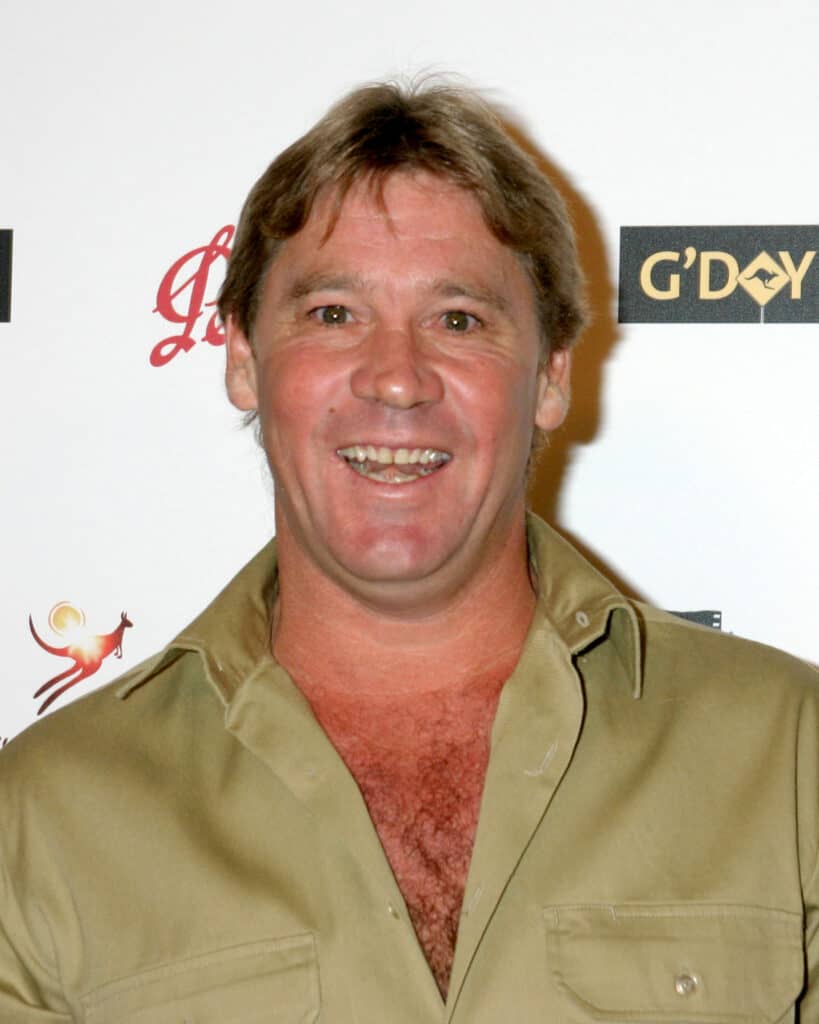Who knows how many careers The Crocodile Hunter is responsible for inspiring? For a long time, Steve Irwin was Australia’s national treasure and tourism ambassador. He lived an adventurous life and, many would say, died a fitting death.
Steve Irwin’s last words, calmly uttered to his cameraman and close friend, were “I’m dying.” His untimely death-by-Stingray shocked the world. Steve’s last words show that, ultimately, the animal-loving icon saw death coming and embraced it.
The sad passing of Steve Irwin, who spent his adventurous life protecting the very animal that took it from him, devastated his fans and fellow animal lovers. Here’s what you need to know about the tragic 4 September 2006 accident that claimed the life of the Aussie icon.
Steve Irwin’s Last Words
Steve was eight days into filming his documentary ‘Ocean’s Deadliest’ when a spot of bad weather forced them to stop shooting. His best friend and cameraman, Justin Lyon, says “Steve was like a caged tiger when he couldn’t do something, particularly on a boat. So he said ‘Let’s go and do something’ and so we jumped into the inflatable and off we went looking for something to do.”
The pair set off in the inflatable boat in search of something to occupy them while they waited for the bad weather to subside. Soon into their impromptu adventure, they came across an eight-foot-wide stingray and decided to film the creature for footage to use in an episode of his daughter’s show, Bindi: The Jungle Girl.
While filming, the short-tailed stingray became aggressive — most likely thinking Steve’s shadow was that of its natural predator the tiger shark — and proceeded to attack Steve. The stingray plunged his barbs into Steve’s chest hundreds of times and one strike landed fatally in his heart.
Justin managed to get Steve back into the inflatable and applied pressure to the wound. Steve looked up at his friend and calmly said “I’m dying” while Justin urged him to think of his children.
Once aboard the main boat, the Croc 1, the team performed CPR on him for an hour but by the time they reached the medics he was pronounced dead in 10 seconds.
Steve Irwin’s Funeral
The 44-year-old’s death was a devastating blow to his wife and two small children, his friends, his colleagues, and the world. When word of his death broke, the flags on Sydney’s Harbour Bridge were lowered to half-mast and in the US, reruns of his TB appearances were played on repeat.
On 9 September 2006, those he left behind said their final goodbyes in a private ceremony in Caloundra before he was laid to rest in a private Australia Zoo gravesite.
On 20 September, a public memorial service was held in the Crocoseum at Australia Zoo despite the then-Prime Minister’s offer to hold a state funeral in Steve’s honor. 5,500 mourners were in attendance and, in addition to Bindi’s moving eulogy, many notable celebrities said goodbye to The Crocodile Hunter.

Steve’s favorite song, ‘True Blue’ by John Williamson, was performed as his iconic truck was loaded up with his usual crocodile-hunting gear and driven out of the Crocoseum one last time.
Steve Irwin’s Legacy
Steve left behind his wife and two children, Bindi and Robert Clarence. His widow and both of their children have followed in their late father’s footsteps and work in the Australian wildlife arena.
Bindi, who was named after her father’s favorite female croc, works at the Australia Zoo — where she met and married her now-husband — and stars in ‘Crikey! It’s the Irwins’. She donates 10% of her salary to Wildlife Warriors, which is her family’s charity.
Robert, Steve’s younger child, stars alongside his mother and sister in ‘Crikey! It’s the Irwins’ and, on top of hosting Robert’s Real Life Adventures, is a wildlife photographer. He is also a published children’s author and regular guest on The Tonight Show with Jimmy Fallon.
The excitement Steve had for wildlife conservation has stayed with his audience and, according to Sir David Attenborough, he has helped shape many lives. His programs are still aired on Animal Planet and Discovery Channel.
In addition to his long-lasting impact on young children, Steve has had an asteroid named in his honor as well as the road that leads to the Australian Zoo and a 135,000-hectare national park.